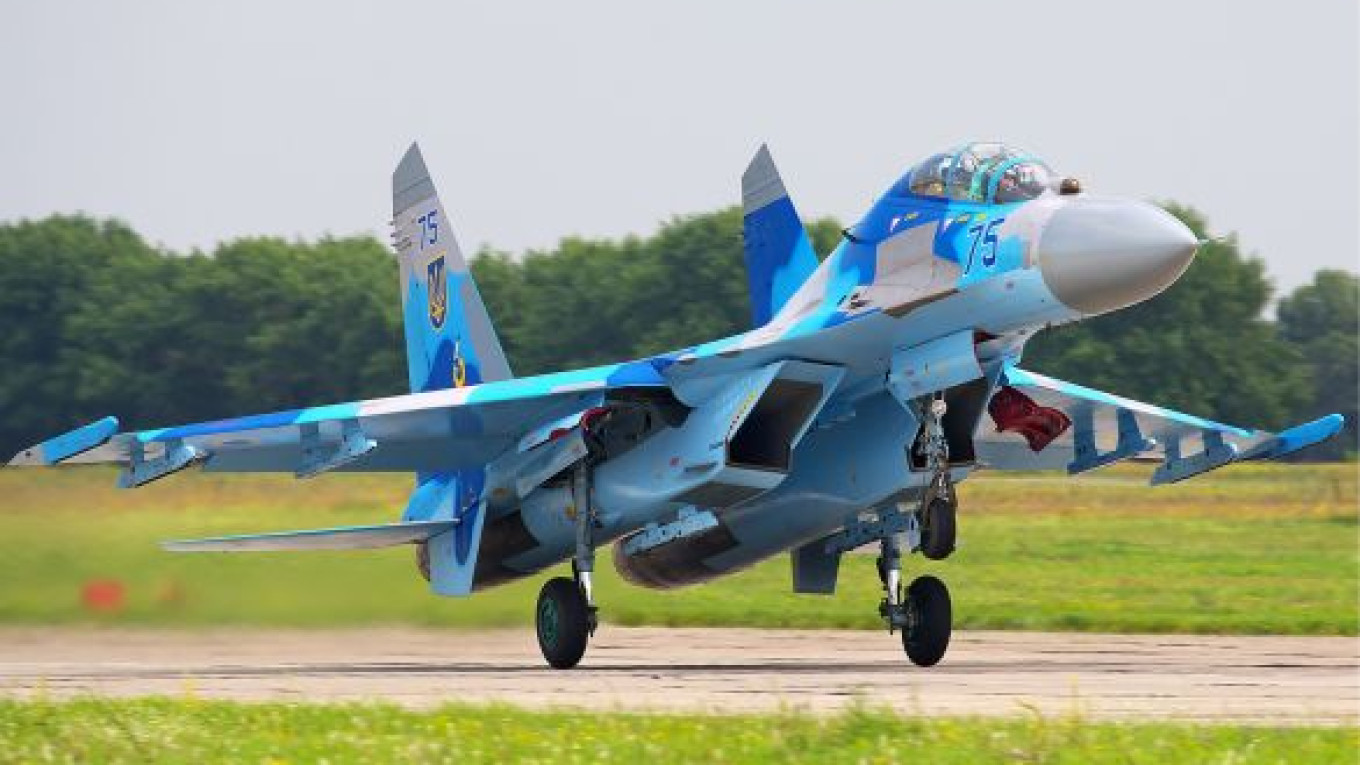Combat aircraft took a 40 percent share in overall Russian arms exports last year, keeping a trend that has become prominent in the past few years, a senior defense official said.
"The structure of [Russian arms] exports remains the same," Alexander Fomin, head of the Federal Service for Military-Technical Cooperation, said in an interview with Ekho Moskvy radio.
"In 2012, equipment for air forces of foreign countries led the export list with a 40-percent share, followed by weaponry for ground forces with about 28 percent, air defense equipment with 16 percent, naval equipment with 13 percent, leaving about 3 percent for other items," Fomin said Monday.
Sukhoi Su-27/30 Flanker and Mikoyan MiG-29 Fulcrum tactical jet fighters, Mil Mi-24/35 gunships, Mi-17 combat transport helicopters and Kamov Ka-28/31 naval helicopters are among the best-selling items in the aviation segment of Russia's arms exports.
These will be ordered over the next five to ten years, according to estimates by the Russian defense industry analysts.
Russia, which last year sold $15.2 billion worth of weaponry, is the world's No. 2 arms exporter, behind the United States.
State arms exporter Rosoboronexport said last week that its order portfolio stood at $34 billion as of June 1. Russia currently supplies arms and military equipment to 66 countries, and has concluded agreements on military and technical cooperation with 85 countries, the company said.
Russia's main arms customers are India, Algeria, China, Venezuela, Malaysia and Syria. Vietnam also emerged as a significant purchaser in 2010, when it signed a deal to buy submarines, aircraft and other military hardware.
A Message from The Moscow Times:
Dear readers,
We are facing unprecedented challenges. Russia's Prosecutor General's Office has designated The Moscow Times as an "undesirable" organization, criminalizing our work and putting our staff at risk of prosecution. This follows our earlier unjust labeling as a "foreign agent."
These actions are direct attempts to silence independent journalism in Russia. The authorities claim our work "discredits the decisions of the Russian leadership." We see things differently: we strive to provide accurate, unbiased reporting on Russia.
We, the journalists of The Moscow Times, refuse to be silenced. But to continue our work, we need your help.
Your support, no matter how small, makes a world of difference. If you can, please support us monthly starting from just $2. It's quick to set up, and every contribution makes a significant impact.
By supporting The Moscow Times, you're defending open, independent journalism in the face of repression. Thank you for standing with us.
Remind me later.


